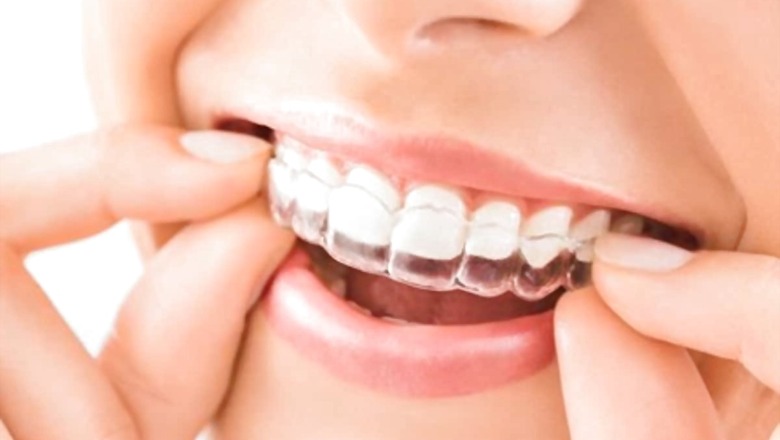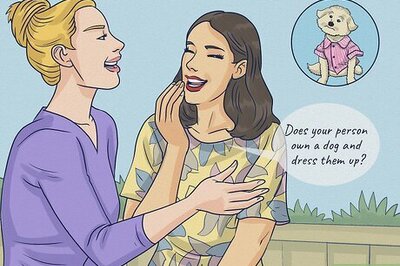
views
The year 2020 has been stressful for everyone due to the COVID-19 pandemic. Be it the healthcare workers who are fighting the disease on the frontlines or those who have not stepped out of their houses in months, stress and anxiety have affected all.
Stress has previously been associated with various health conditions including cardiovascular diseases. During this pandemic, dental surgeons from across the globe have come across many cases of pain in the jaw and cracked teeth. Stress has been one of the main reasons behind these oral problems.
Which oral problems are associated with stress?
The oral problems seen due to stress are as follows:
1. Bruxism: Also known as the grinding of teeth, it can occur both during the day or during the night.
2. Jaw pain: Stress can result in pain in the joints and muscles of the jaw, which can radiate to the ear or face. This usually occurs due to vigorous clenching or biting.
3. Gum disease: Inflammation, bleeding, itching and pain can occur in the gums due to lack of brushing and flossing. Poor hygiene can also result in tooth decay.
4. Cold sores: Stress can trigger herpes simplex virus (HSV-1), which results in cold sores.
5. Oral ulcers: Stress can result in oral ulcers which can be red in colour with a white border.
6. Lichen planus: Stress can trigger lichen planus, which is a white patch that can appear anywhere on the mucous membrane of the mouth. It can lead you to experience a burning sensation in the mouth.
How can you deal with all these stress-related oral problems?
The best person to talk to in order to deal with these oral problems is your dentist. They would be able to suggest the necessary treatment plans that you might need to undergo.
1. For a cracked tooth, you will either have to get it restored with dental cement or you may require more invasive treatment such as root canal treatment if the damage is extensive.
2. Those who grind their teeth, both while sleeping and otherwise, will require a custom-fitted night guard, which can be worn at night to prevent tooth damage caused by grinding and clenching.
3. The night guard also provides a cushioning effect thus removing stress from the muscles and joints of the mouth.
4. Your doctor may also provide you with some anti-inflammatory drugs and some pain killers to relieve the pain.
5. People with jaw pain can gently massage their aching joints or can go for physical therapy.
6. For people with excess temporomandibular joint (the joint in front of your ear, which joins the lower jaw to the skull) pain, also called TMJ pain, the doctor may recommend transcutaneous electrical nerve stimulation (TENS) therapy, where low voltage electrical current is used to provide pain relief.
7. You must avoid hard food when your jaw is aching, as it would worsen your pain.
8. Avoid consumption of tobacco and alcohol as they can cause drying of the mouth and worsen the oral symptoms.
For more information, read our article on Bruxism (Teeth grinding).
Health articles on News18 are written by myUpchar.com, India’s first and biggest resource for verified medical information. At myUpchar, researchers and journalists work with doctors to bring you information on all things health


















Comments
0 comment